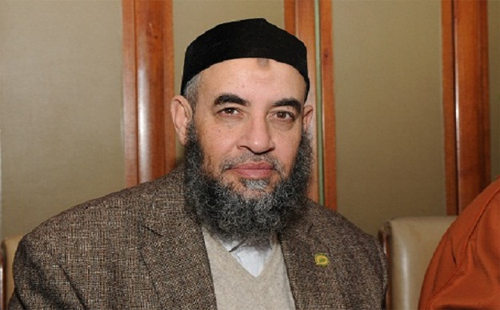As Beirut prepared to don the mantle on Thursday of UNESCO “World Book Capital City 2009, Arabic novels are enjoying an unprecedented boom across the Middle East, breaking taboos on topics such as sex and religion.
The Lebanese capital was chosen as the world’s literary center this year “in the light of its focus on cultural diversity, dialogue and tolerance, according to the UNESCO selection committee.
There is no shortage of literary fodder as book readings and launches are scheduled across Beirut daily for the last week of April. Among books being showcased will be a wealth of latest offerings from leading authors.
“More than 100 novels were up for the International Prize for Arabic Fiction (the Arab version of the Booker Prize) in 2008/09 – and that’s an unprecedented number, said Fakhri Salih, a former jury member for the award and current chairman of Jordan’s association of literary critics.
The prize was awarded to Egyptian author Youssef Zeidan for his book “Azazil, which centers on changes in religion in Arab countries around the Mediterranean in the fifth century AD.
The novel quickly gained popularity as a genre in 2002 when Egyptian writer Alaa El-Aswany published the highly successful “The Yacoubian Building, a novel-turned-movie depicting regime corruption and the rise of Islamism in Egypt.
The publication was followed by a flurry of works that delve into taboo topics, primarily sexuality and religion, in countries where such books had been historically banned and where the novel was almost non-existent.
“The production of novels in Gulf countries exploded in recent years, says Rana Idriss, who heads the Beirut-based Al-Adab (Literature) publishing house.
In 2005, for example, Saudi author Rajaa Alsanea found fame with “Girls of Riyadh, a book that traces the lives of four young women in the ultra-conservative kingdom.
“Individualism and the ego awoke in the Arab world through the novel, as though it were personal resistance against oppression, Lebanese author Jabbour Doueihy told AFP.
“The West likes Arab novels that deal with political oppression, women, or sexual taboos. It’s looking for something exotic and is trying to discover the region through these books.
But although the Arab world is home to internationally acclaimed writers such as Egypt’s Naguib Mahfuz and Sudan’s Al-Tayeb Salih, author of the 1966 hit “Season of Migration to the North, reading has lost popularity.
“We cannot speak of an Arab world that likes to read, said publisher Idriss.
She estimates that even bestsellers pitch no more than 3,000 copies, a number well below hit sales in Europe or the United States – and especially low considering the Arab world boasts a population of some 300 million.
Literary critics agree that new novelists have not yet reached the heights of legendary writers like Mahfuz, the only Arab author to have been awarded the Nobel prize – in 1988 – or Sudan’s Salih.
“It’s good to have new blood, but many works out there cannot be qualified as novels, or are mediocre, relying only on audacity in talking about sex or religion, Idriss said.
Lebanese novelist Hassan Daoud, who edits daily newspaper Al-Mustaqbal’s literary supplement, agrees.
“Some writers place speed over the basic criteria of novels, Daoud told AFP.
“Daring is great, but we should always ask ourselves whether all these novels dubbed ‘audacious’ will pass the test of time and join the Arab literary canon.
Arab and foreign audiences alike nonetheless continue to be enthralled by the 21st-century Arab novel – incidentally at a time when Beirut readies to be dubbed the ninth world book capital.
“The Arab novel offers Westerners an ‘anthropological’ tool to understand the Arab world, which has been accused of terrorism since the Sept. 11 attacks, Fakhri Salih said.
Publisher Idriss says there is a glimmer of hope in that because writing in Arabic has become “fashionable new talent may appeal to wider audiences.
“We have begun to see hip young people engaging in the novel. It’s a trend that is still timid, but it gives us hope.

